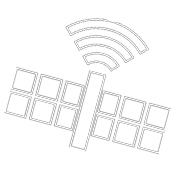- Complementary objectives
Remote Sensing Dept. supports education at the Master (M.Sc.), and doctoral (Ph.D.), as well as PostDoc track levels. We use and propagate state-of-the-art methods, models and software in our training, supporting remote sensing education at the highest qualification levels.
Development of personnel professional and complementary skills is one of our continuous concern. On medium term, we intend to:
- increase the number of publications in peer review journals,
by:
- stimulating scientific creativity of young researchers (regular scientific seminars, participation to international conferences, short stages in expert groups)
- joint authorship with researchers from Diaspora / experts from EARLINET, AERONET etc.
- increasing access to documentation and data
- optimizing work task distribution, as to increase the time devoted to the elaboration of articles
- enlarge collaboration with international scientific community,
by:
- exercising and improving communication skills, scientific background and argumentation (lectures, seminars, tests, competitions)
- training the personnel on horizontal issues such as: professional deontology, science communication, intellectual property rights, leadership
- participating more actively in networking activities (EARLINET, ACTRIS, EG-CLIMET meetings)
- intensified involvement in international committees (ICLAS, GALION, EUFAR, ISO, EG-CLIMET etc.)
- intensify absorption of funds for research, by:
- stimulating researchers to look for funding opportunities
- support young scientists to develop their own projects (seminars on project management, brainstorming, consulting)
- maintain existing partnerships (both at national and international level) and build up new ones (e.g. interdisciplinary consortia)
- capitalize results by offering innovative services to various stakeholders:
- developing specific products and services based on stakeholders needs
- preparing the personnel for operational work (work time, requirements, responsibility)
- implementing a targeted publicity and marketing plan
- training researchers to properly present their results to non professionals
- organizing various demonstration events (workshops, meetings, presentations etc.)
